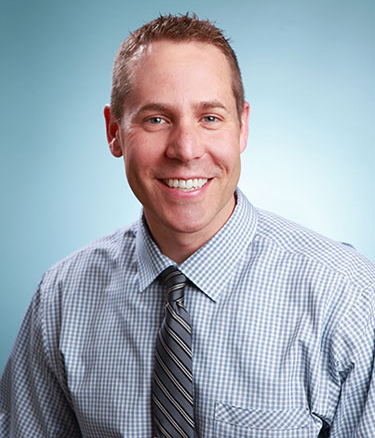It’s the new year and you’ve got all your goals set, right? Are these the same goals that you will forget by March, if not sooner? You know, the ones you set last year – but this time you’re serious.
So you suck at goals, so what? Doesn’t everybody? I mean everyone knows the gym is crazy busy for the first 2 months of the year, and then – ghost town.
Setting goals is the easy part. So why is goal achievement so damn hard? You’ve used all the techniques: you’ve written them down, you’ve set an achievement date, you made them specific, and measurable. You can say it’s a lack of motivation, but you have motivation. You can say it’s follow through, but you can follow through on lots of other things. You see other people meeting their goals, so why is this so hard?
Is this your pattern? Go look in the mirror and see if this is you. Now say it with me, “I suck at achieving my goals.” Well, the first step is admitting you have a problem, right?
But, you don’t want to suck and you don’t know why you suck. How do we stop SUCKING??
I’d like to talk to you about an Early Maladaptive Schema. A what? Let’s just call it a schema for short. Dr. Jeffrey Young defines Early Maladaptive Schema as:
“Broad, pervasive themes regarding oneself and one’s relationship with others, developed during childhood and elaborated throughout one’s lifetime, and dysfunctional to a significant degree.”
Something about schema: they’re largely unconscious, which means that you don’t really know you have it, or if you have an inkling that you have it, you have a hard time putting your finger on it.
One schema in particular is a roadblock for people who cannot seem to meet their goals. It’s called: Insufficient Self-Control / Self-Discipline, and it’s defined as:
Pervasive difficulty or refusal to exercise sufficient self-control and frustration tolerance to achieve one’s personal goals, or to restrain the excessive expression of one’s emotions and impulses. In its milder form, patient presents with an exaggerated emphasis on discomfort-avoidance: avoiding pain, conflict, confrontation, responsibility, or overexertion—at the expense of personal fulfillment, commitment, or integrity.
That is why you suck.
When you have this schema you are your own worst enemy when it comes to meeting your goals. You see that you want things for your life but you unconsciously work against yourself because it takes excessive commitment, and you refuse to be uncomfortable for any length of time.
Guess what is required for meeting goals? Yep – being uncomfortable. If it were easy it wouldn’t be a goal.
Since being uncomfortable is REQUIRED for meeting a goal and you have this schema, you stop, you give up, you quit, you “kind of” do it – but eventually the behavior falls apart, and the goal goes on the list next year.
Breaking The Pattern
If you are serious about stopping the suckage you have to start focusing on your pattern, rather than on setting more goals and doing the same thing – but expecting a different result.
Schema are “embedded” in your self-talk. To get on top of this pattern you have to detect how the schema “talks” to you. Hearing the schema means you are making yourself aware of what and how you are thinking, understanding what emotions this triggers, and how this affects your behavior.
- Know what and how you think when you’re using the schema. This is the dysfunctional reasoning in your head that allows you to procrastinate, “I’ll do it tomorrow.” It uses emotional reasoning, “I don’t feel like doing it today.” It gives you permission statements, “You deserve that dessert, you’ve been working really hard to lose weight.” It allows you to rationalize, “So what if you’re not doing it. It’s not like the world is going to end because you are not going to do X goal today.” The schema may say all types of other things to you. List them all out.
- When you’re thinking this way, how does it make you feel? (Be honest. If you look at this way of thinking, it is likely that it makes you feel good because it matches the purpose of the schema – to make you comfortable.)
- If you are thinking and feeling this way – how does this influence or change your behavior?
- How do you think this way of thinking affects other people, or their perception of you, or your perception of yourself?
I tell people you have to see the schema thinking as the “devil” on your shoulder filling up your head with crap that takes you away from who you really want to be. So, in these instances above – what happens after you’ve given yourself permission and you went against your goals? Most of the time you feel bad, or guilty, or wish you had done or not done the behavior. This makes you uncomfortable, and what’s the easiest way to get comfortable again? – give up the goal, then you don’t have to feel bad or guilty.
 To break the pattern you need an “angel,” an alternative voice that corresponds with your goals, who you are, and who you intend to be. This alternative voice is called your Healthy Adult. The Healthy Adult is the answer to the schema, your best friend, the voice that pushes you forward into a healthier place that makes you all you intend to be.
To break the pattern you need an “angel,” an alternative voice that corresponds with your goals, who you are, and who you intend to be. This alternative voice is called your Healthy Adult. The Healthy Adult is the answer to the schema, your best friend, the voice that pushes you forward into a healthier place that makes you all you intend to be.
You have to make the Healthy Adult voice very clear. You have to know when the schema is talking to you so you can change your self-talk to the Healthy Adult. Then you have to refuse to give in to being comfortable. You have to do something contradictory to your schema – associate being comfortable with being dysfunctional.
The easy way I help people understand this is Discipline = Freedom. When you are a disciplined person you have the freedom of a healthy body, the freedom of finances, the freedom from emotional or mental pain, the freedom to know you can accomplish whatever you set your mind to doing.
Working with your schema is difficult and you will need the help of a psychologist who knows what they are doing. I would recommend the book by Dr. Jeffrey Young: Reinventing Your Life.
Photo Credit
Dr. S cott Symes is a psychologist at Rejuvenate Mind-Body Wellness Center in Lee’s Summit. He is certified in cognitive therapy and also practices schema therapy. If you are struggling with patterns of goal failure or need to understand how the patterns of your schema influence your relationships call for an appointment with Dr. Symes at Rejuvenate. 816-761-3944.
cott Symes is a psychologist at Rejuvenate Mind-Body Wellness Center in Lee’s Summit. He is certified in cognitive therapy and also practices schema therapy. If you are struggling with patterns of goal failure or need to understand how the patterns of your schema influence your relationships call for an appointment with Dr. Symes at Rejuvenate. 816-761-3944.



